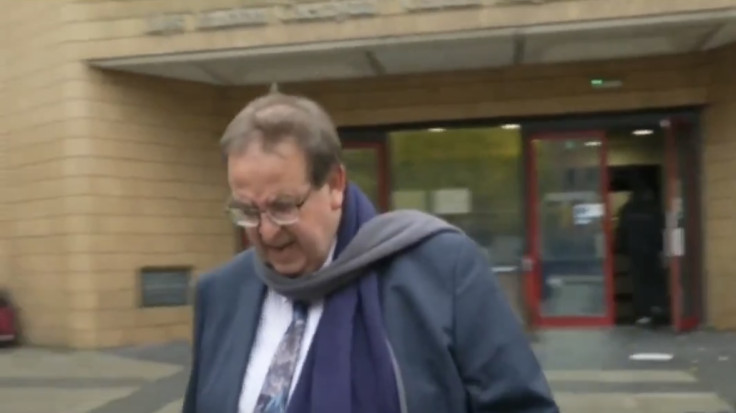Welsh Priest Avoids Jail After Admitting Posting Neo-Nazi Death Threats Online
Father Mark Rowles, 49, from South Wales, escaped prison after admitting to racist messages, as the court highlighted his mental health and focus on rehabilitation.

A Catholic priest from South Wales has narrowly avoided jail after admitting to sending violent, racist messages in neo-Nazi chatrooms. The court heard that Father Mark Rowles, 49, was identified by anti-terror detectives through digital forensics linking him to extremist Telegram groups, where he posted material targeting minority communities and encouraged violence.
Following his guilty plea at Cardiff Crown Court, Rowles was sentenced to a community order rather than immediate custody. The court's decision was heavily influenced by his mental health issues, which the judge cited as a significant factor in avoiding a custodial sentence.
The Case: Extremist Messaging in Digital Spaces
Investigators traced Rowles' online activity to a series of posts within far-right channels that praised extremist ideology and discussed potential attacks on protected groups. The activity spanned multiple messages and threads, uncovered through forensic analysis of devices linked to him.
The case brought against him involved offences related to malicious and racist communications, aligning with propaganda often associated with extremist groups. The evidence indicated that Rowles had engaged in a sustained pattern of posting messages that promoted hate and violence.
Sentencing and Court Ruling
Rather than jail, Rowles received a community-based sentence that includes supervision and participation in rehabilitation programmes. The court also imposed restrictions on his online activity, particularly concerning engagement with extremist content, aiming to mitigate further risks to public safety.
The judge emphasised the importance of rehabilitation over punishment in this case, acknowledging the role of mental health struggles in his actions. The sentence reflects a growing judicial trend to address the root causes of extremism, especially in cases involving low to mid-level offences.
Church Response and Safeguarding Measures
In the wake of the conviction, Rowles was suspended from clerical duties pending internal church investigations. Such suspensions are standard practice when safeguarding concerns arise, and they are implemented alongside disciplinary procedures under canon law and employment regulations.
While specific diocesan actions have not been publicly detailed, the church's response aligns with the broader safeguarding protocols aimed at protecting communities from potential harm and ensuring accountability within the clergy.
The Broader Significance: Online Radicalisation and Public Safety
This case underscores the escalating challenge of online radicalisation in the UK, where individuals from respected professions, including clergy, law enforcement, and educators, are increasingly drawn into extremist online spaces. These ecosystems—often hosted on encrypted platforms and fringe social networks—blur the lines between free speech and violent incitement.
Experts warn that what begins as expressions of social or political frustration can escalate into a cycle of conspiracy theories, hate speech, and dehumanisation. This 'slow-burn' radicalisation process is difficult to detect until it manifests in criminal threats or hate-driven crimes.
Over the past decade, UK authorities have shifted their focus from large-scale terrorist plots to the online environments that incubate extremism. The Home Office and counter-terror police report a steady rise in far-right activity, now constituting roughly one-third of all terrorism-related arrests in England and Wales.
Law enforcement agencies have expanded digital forensics units and partnered with tech firms and NGOs to identify hate networks and disrupt recruitment efforts. While not all online extremist activity results in violence, unchecked hate speech and intimidation can foster environments conducive to radicalisation and community harm.
Judicial Approaches to Online Extremism
Courts are increasingly grappling with how to proportionately respond to such offences. In cases like Rowles', judges weigh whether imprisonment is the most effective means of protecting the public or whether structured rehabilitation can better prevent reoffending.
This shift reflects a broader judicial understanding that addressing the psychological and social drivers of extremism is crucial. The Rowles case highlights how feelings of grievance, isolation, and online echo chambers can ensnare individuals across different ages, classes, and professions.
It demonstrates that digital radicalisation is no longer a fringe issue but a significant public safety concern. The challenge for authorities and communities remains how to balance justice, rehabilitation, and safeguarding in tackling the rising tide of online hate and extremism.
© Copyright IBTimes 2025. All rights reserved.





















